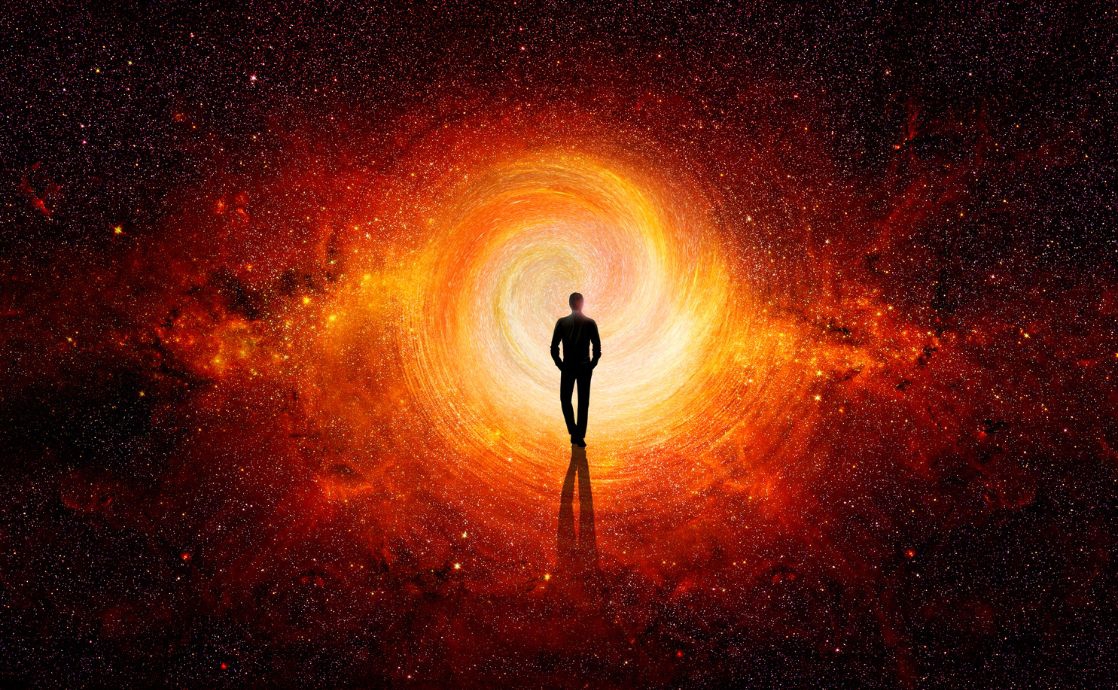The views expressed in our content reflect individual perspectives and do not represent the authoritative views of the Baha'i Faith.
A woman I know firmly believes in reincarnation — but she now has a great fear of death after a new age “healer” convinced her that she was once the warrior Genghis Khan, who buried his victims alive.
She’s now absolutely terrified she will have to pay for his cruelty when she dies.
Many, many people, including my suffering friend, have really committed themselves to the doctrine of reincarnation, even when it applies to highly unlikely outcomes like the one she fears.
RELATED: Where Do We Go When We Die?
It’s easy to understand why, because the whole idea of reincarnation — also known as rebirth, samsara, transmigration, punarjanman, and metempsychosis — forms a common thread among several spiritual beliefs.
In this series of essays, let’s look at those belief systems, discuss the whole concept of reincarnation, and explore the Baha’i teachings on the topic. Hopefully, we can approach the idea reasonably and rationally, examine the factual and scriptural evidence, and come to some conclusions about the veracity of reincarnation without disputing or contending with anyone’s sincerely-held beliefs. We’ll begin with the dictionary definition, from Webster’s:
re·in·car·na·tion n. rebirth of the soul in another body
Here’s a more detailed definition from Wikipedia:
Reincarnation, also known as rebirth or transmigration, is the philosophical or religious concept that the non-physical essence of a living being begins a new life in a different physical form or body after biological death.
Interestingly, the whole concept of reincarnation starts with a principle common to just about every Faith — that we each have a soul, an inner spirit.
Christianity, Islam, Judaism, the Baha’i Faith, all of the Dharmic religions that developed on the Indian subcontinent — Buddhism, Hinduism, Jainism, Sikhism, etc. — and almost all of the world’s Indigenous spiritual systems share this basic, near-universal belief in the eternal human soul.
But the current understandings of those religions diverge when it comes to their conception of the fate of the soul after the death of the body.
In general, the followers of the Abrahamic religions — Christians, Jews, Muslims, and Baha’is, which, when added together, make up approximately 56 percent of the world’s population — do not believe in reincarnation.
In general, the followers of some of the Dharmic religions — which together make up approximately 22 percent of the world’s population — do accept the idea of reincarnation, although multiple sects of Hinduism and Buddhism do not believe in that doctrine.
However, belief in reincarnation isn’t monolithic — at least three different interpretations exist, as explained here by Abdu’l-Baha in his book Some Answered Questions:
… the reincarnationists are of two kinds. The first do not believe in spiritual rewards and punishments in the next world. They hold instead that man receives his punishment or recompense through reincarnation and return to this world; they regard heaven and hell to be confined to this material realm, and they do not believe in the world beyond. This group is itself divided in two: One division holds that, as a severe punishment, man may at times assume an animal form in returning to this world, and that after enduring this painful torment he proceeds from the animal realm into the human world, and this they call transmigration. The other division holds that man returns to the same human world whence he departed, and that the rewards and punishments of the former life are experienced in his return, and this they call reincarnation. Neither of these divisions believes in a world beyond this one.
The second group of reincarnationists believe in the next world and see reincarnation as the means of becoming perfect, in that man gradually acquires perfections by departing from and returning again to this world until he attains to the very heart of perfection. That is, man is composed of matter and energy: In the beginning, or in the first cycle, the matter is imperfect, but upon returning repeatedly to this world it progresses and acquires refinement and subtlety until it becomes like a polished mirror; and then the energy, which consists in the spirit, is fully realized therein with all its perfections.
Are any of these three options possible? Do our souls re-enter other physical bodies after death? Could a person be reborn as an insect or an animal? Do we go through multiple “lives” on this plane of existence before we reach perfection?
Certainly, looking at the question from a spiritual perspective, all of the believers in reincarnation have a similar belief in common — that human beings each possess an eternal soul. They only differ in what happens to that soul after death, some believing that it enters other living things or “returns” to this world in another physical vessel.
RELATED: Death, Dreams, and the Dawn of My Next Existence
In some sects of Buddhism, for example, reincarnation is part of a process of perfecting the soul, involving many successive rebirths that occur until that soul reaches nirvana, or release. For Hindus, the parallel term — moksha — also means our eventual freedom and liberation from the cycle of birth and death. Believers can reach both of these states of being once they have left their egos and lower desires behind, transcending the animalistic behaviors and eliminating all of the human causes of suffering.
These essentially spiritual journeys, prominent in the theology of all the Dharmic religions, have striking similarities to the seeker’s path described by Baha’u’llah in the Baha’i writings. In Baha’u’llah’s mystical book The Seven Valleys, for example, each of those symbolic “valleys” represents the successive stages of life reached through exploration of the self and the gradual perfection of the spirit:
All these states are to be found and witnessed in the Valley of Wonderment, wherein the wayfarer at every moment seeketh for more and is not wearied. …
Likewise, reflect upon the perfection of man’s creation, and that all these planes and states are folded up and hidden away within him. …
We must therefore labour to destroy the animal condition, till the meaning of humanity cometh to light.
In many ways, then, the deep spiritual insights of the Dharmic teachings — if the idea of reincarnation isn’t taken literally and is instead understood metaphorically — can be viewed as describing those same spiritual stages of the aware, evolving life of the soul.
In the next essay in this series, we’ll look at what that insight can mean for our lives today.
















Comments
Sign in or create an account
Continue with Googleor